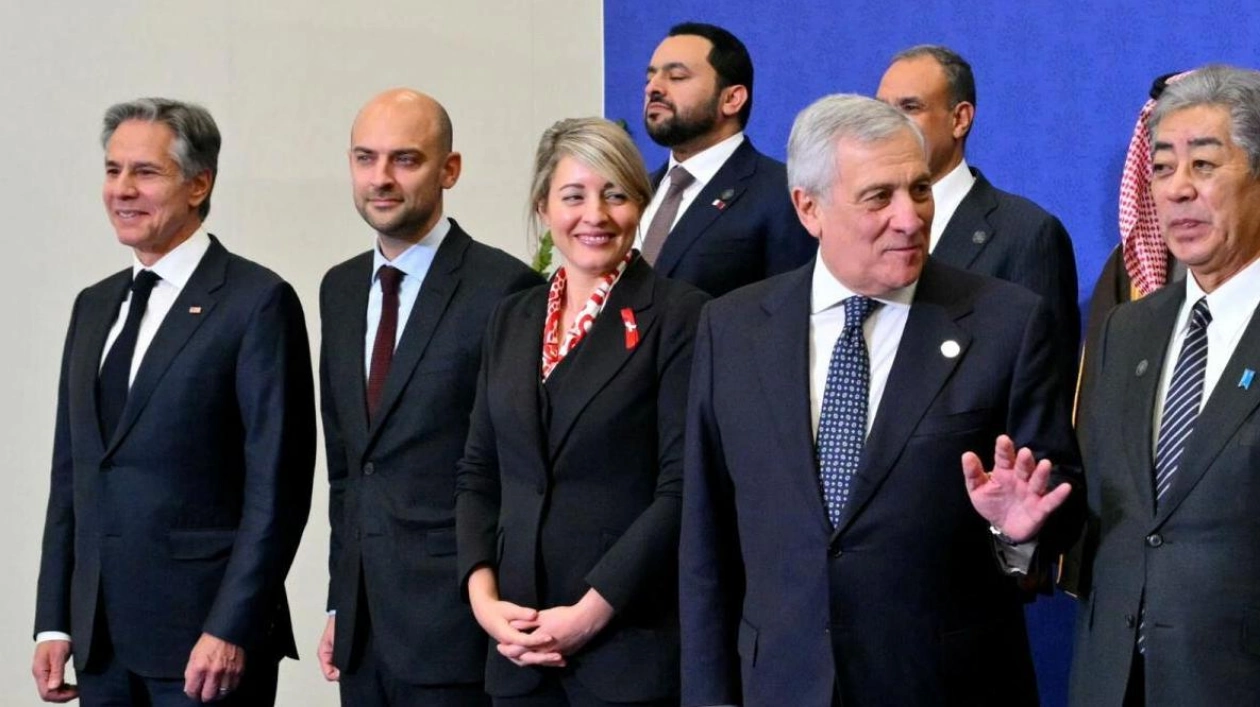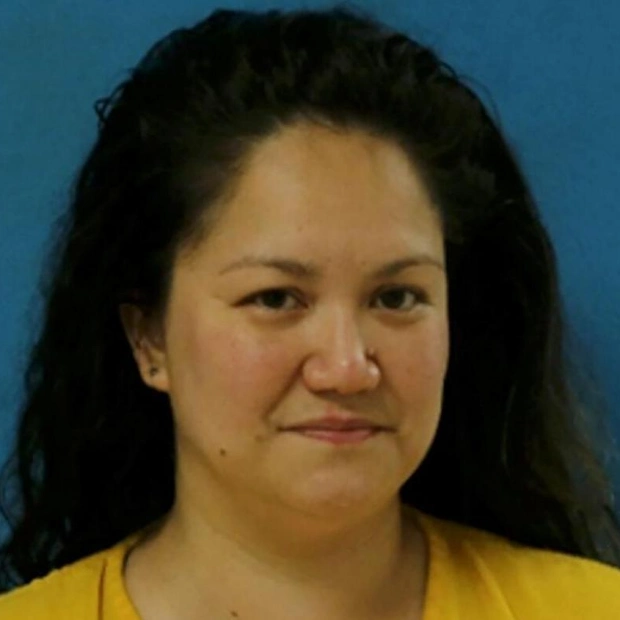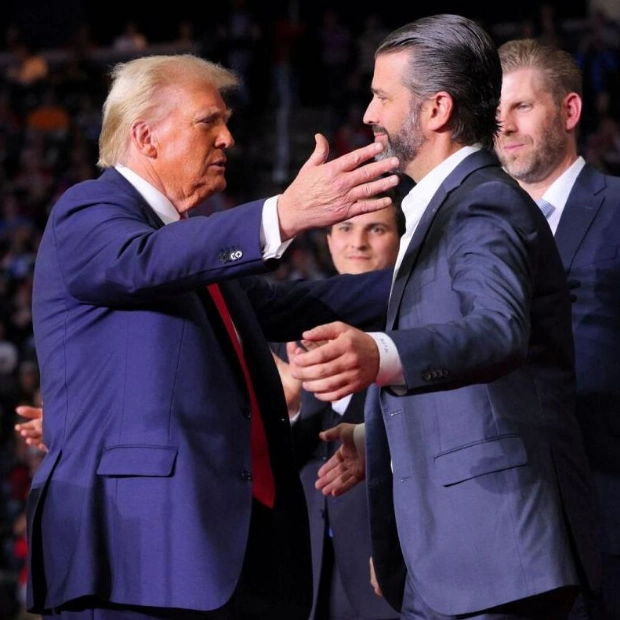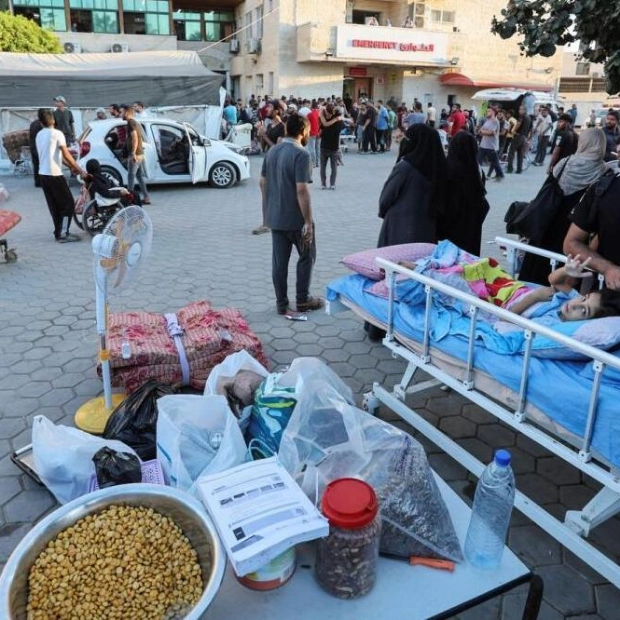US Secretary of State Antony Blinken, France's Foreign Affairs Minister Jean-Noel Barrot, Canada's Foreign Affairs Minister Melanie Joly, Italy's Foreign Minister Antonio Tajani, and Japan's Foreign Minister Takeshi Iwaya joined Arab partners for a photo during the G7 Foreign Ministers meeting in Fiuggi, central Italy, on Monday. REUTERS
Italian Foreign Minister Antonio Tajani expressed optimism for a ceasefire in Lebanon as Middle East tensions took center stage at the G7 meeting near Rome. The Group of Seven foreign ministers also addressed the International Criminal Court's arrest warrants for Israeli Prime Minister Benjamin Netanyahu and Hamas military chief.
US Secretary of State Antony Blinken participated in the talks in Fiuggi and Anagni with ministers from Britain, Canada, Germany, France, Japan, and host Italy. Tajani stated, "I am optimistic about Lebanon," amid growing international efforts for a ceasefire, despite the complexity compared to Gaza. He emphasized the commitment to pressuring Israel and Hamas to end the conflict in Palestine.
Tajani acknowledged challenges in reaching a consensus on the ICC decision. The ICC issued warrants against Netanyahu, his former defense minister Yoav Gallant, and Hamas' Mohammed Deif, accusing them of crimes against humanity and war crimes in Israel's war on Hamas, sparked by the group's October 7, 2023 attack. Israel and its allies condemned the decision, while Turkey and rights groups welcomed it.
Several countries pledged to comply with ICC warrants and arrest Netanyahu if he enters their territory, while others are still deliberating. Tajani noted that the G7 ministers were working to agree on the wording regarding the ICC decision in their final statement. He emphasized the need to negotiate with Netanyahu for peace in Lebanon and Palestine, despite disagreements with his government's actions in Gaza.
A second session on Monday included ministers from Saudi Arabia, Egypt, Jordan, the United Arab Emirates, and Qatar, along with the Arab League secretary general. The G7 talks occurred amid political uncertainty following Donald Trump's US election win. On Tuesday, discussions will focus on Ukraine, with the war-torn country's foreign minister, Andriy Sybiga, present. Officials will explore ways to support Kyiv, peace prospects, and future reconstruction initiatives.
In Brussels, NATO countries and Ukraine will discuss Russia's firing of an experimental hypersonic intermediate-range missile. Tajani highlighted the importance of unity, particularly in relations with the Russian Federation. Britain's Foreign Secretary David Lammy announced the country's largest sanctions package yet against Russia's "shadow fleet," used to bypass export and oil embargoes to fund the war against Ukraine.
Asia-Pacific tensions are also on the G7 agenda, with Italy inviting foreign ministers from South Korea, India, Indonesia, and the Philippines. The G7 ministers are expected to discuss crises in Haiti and Sudan, as well as political tensions in Venezuela.
Source link: https://www.khaleejtimes.com






